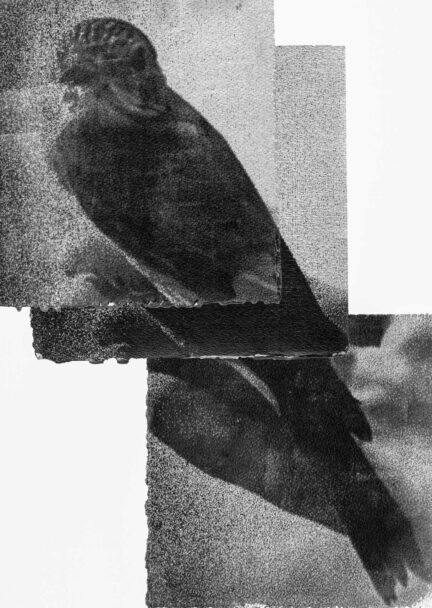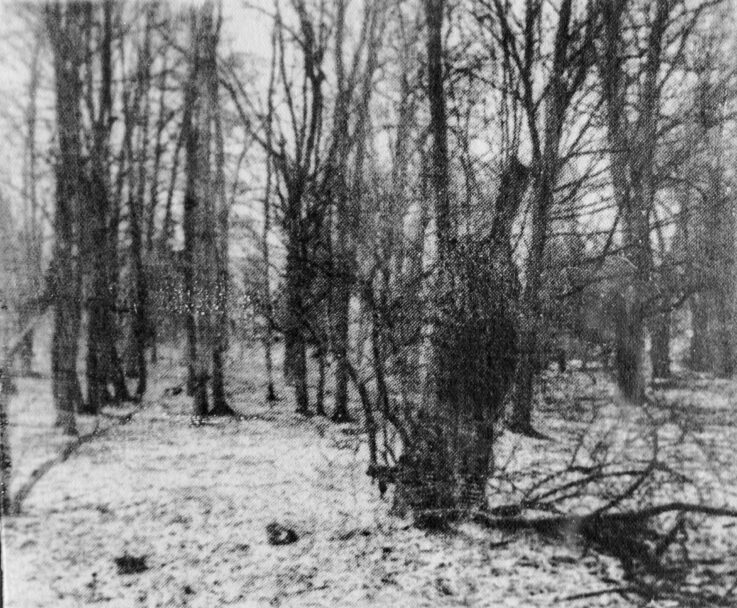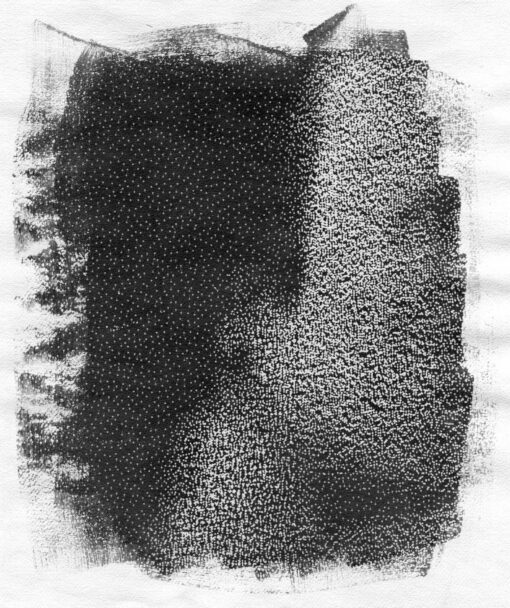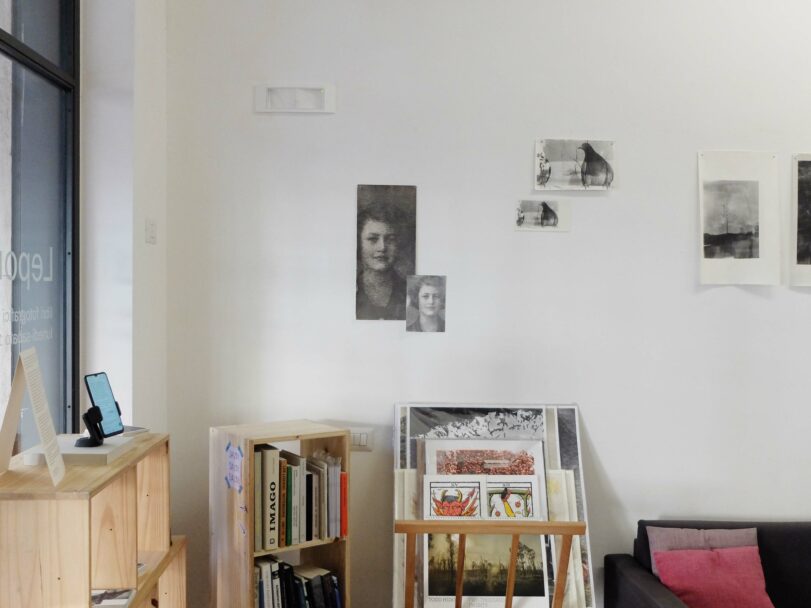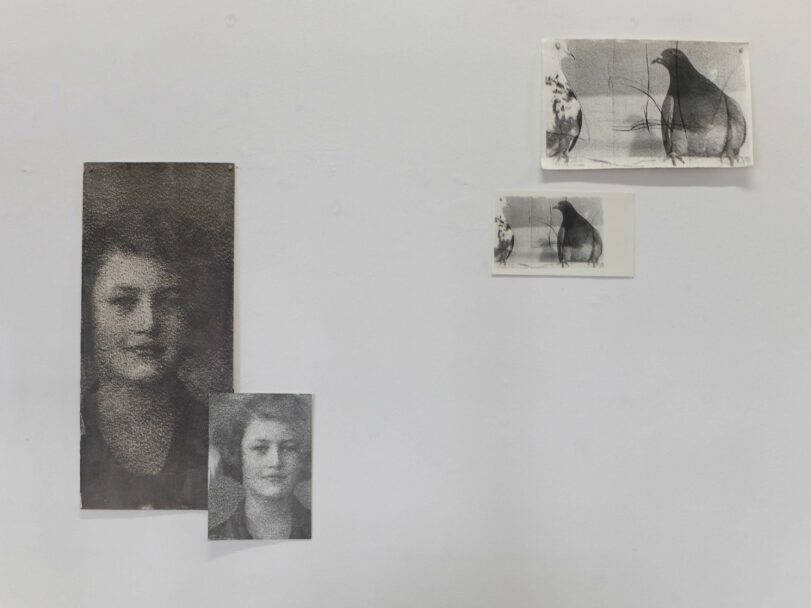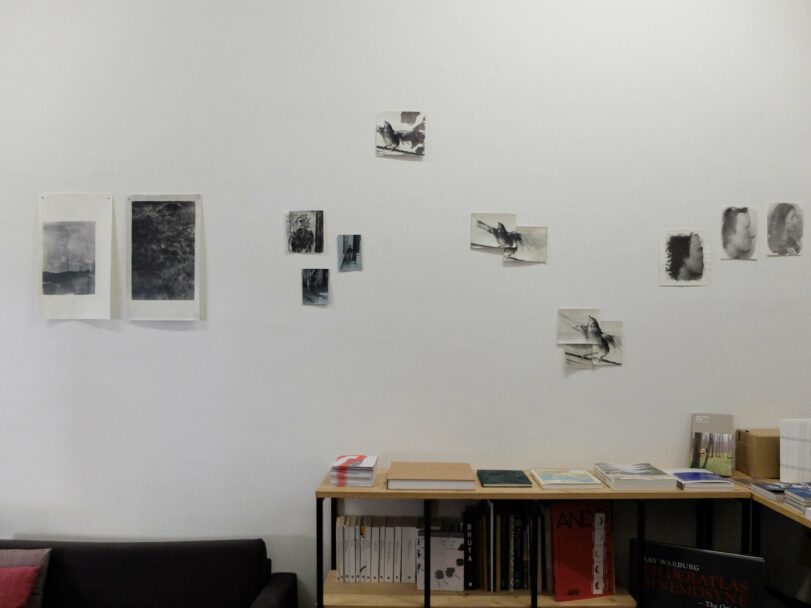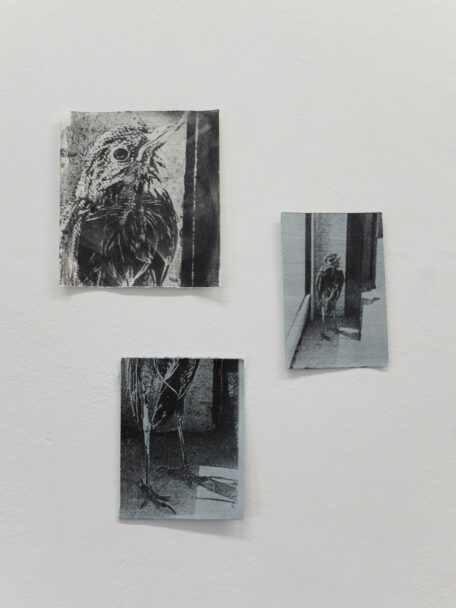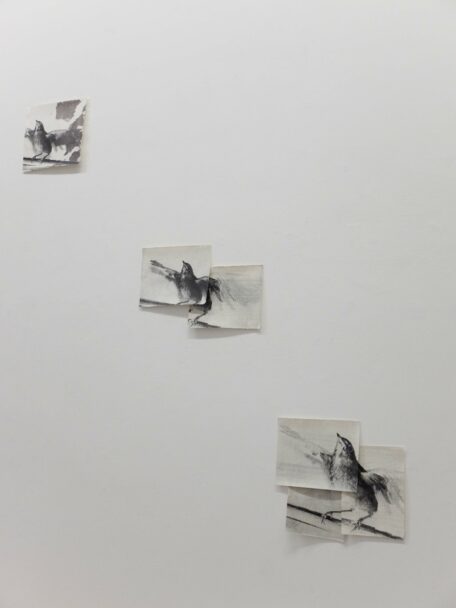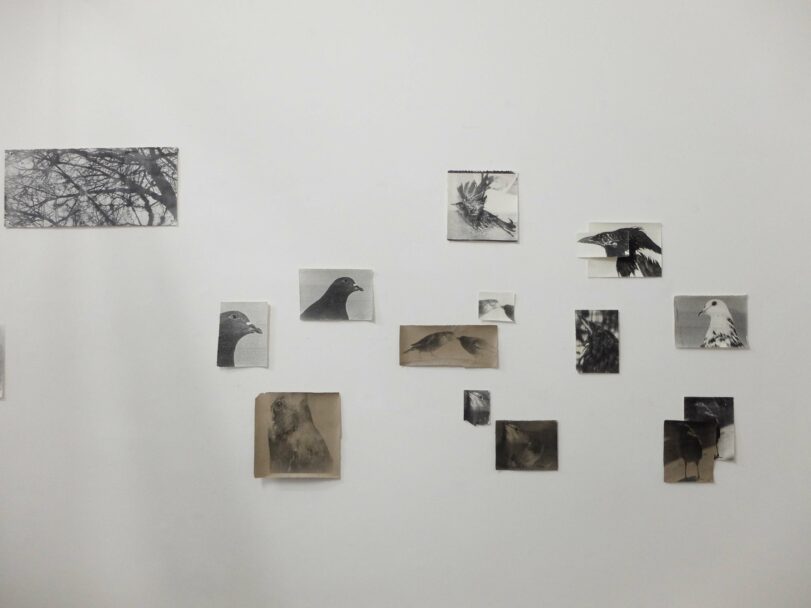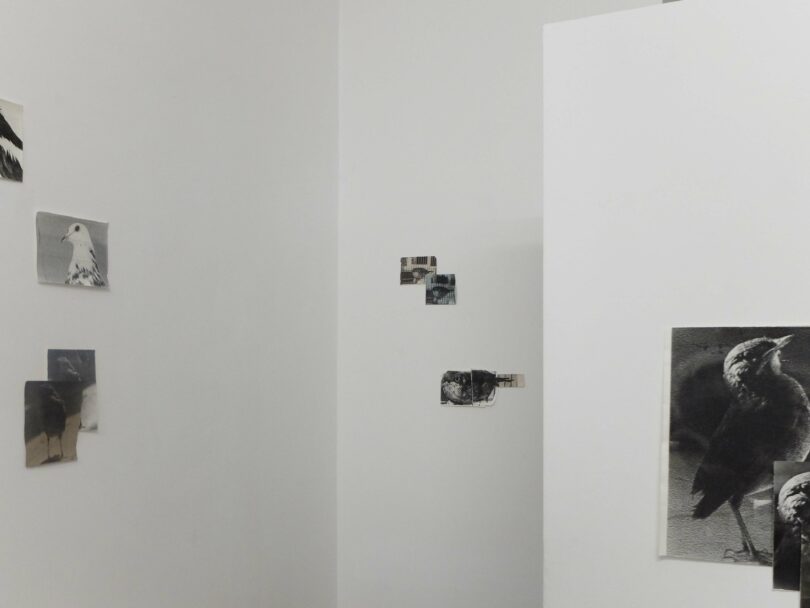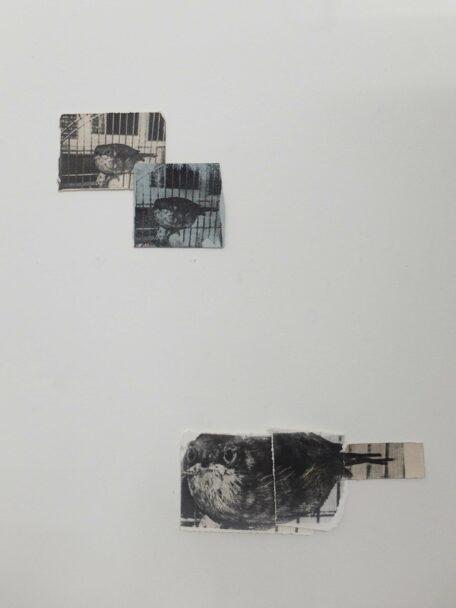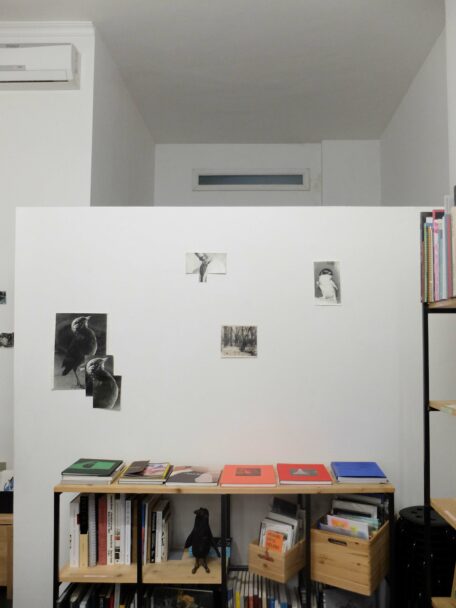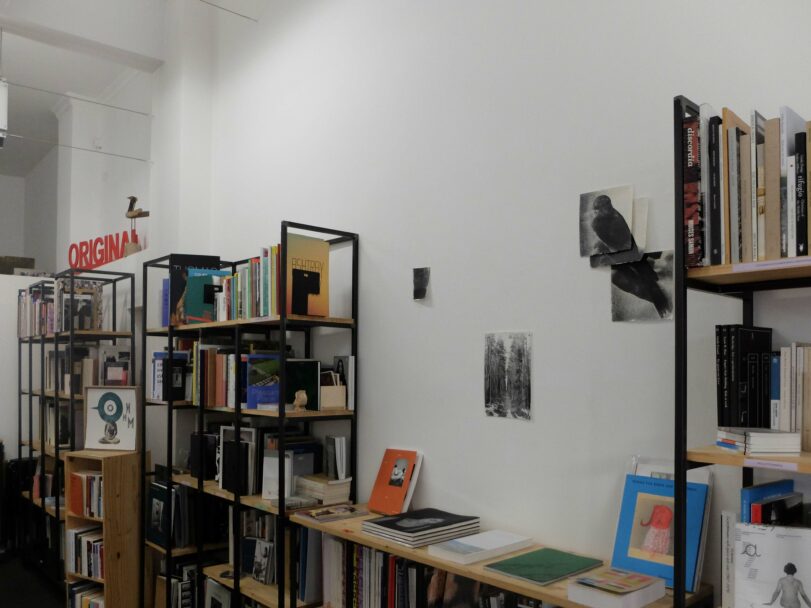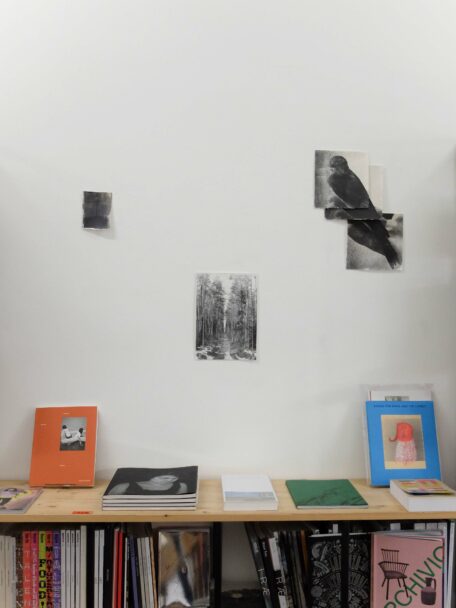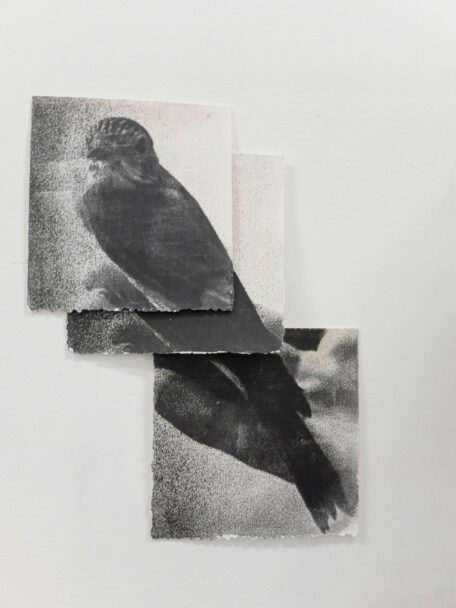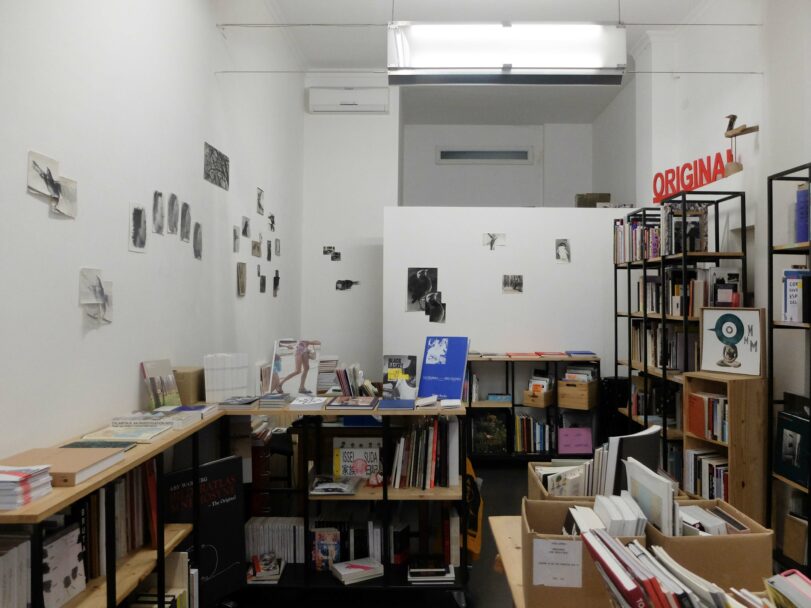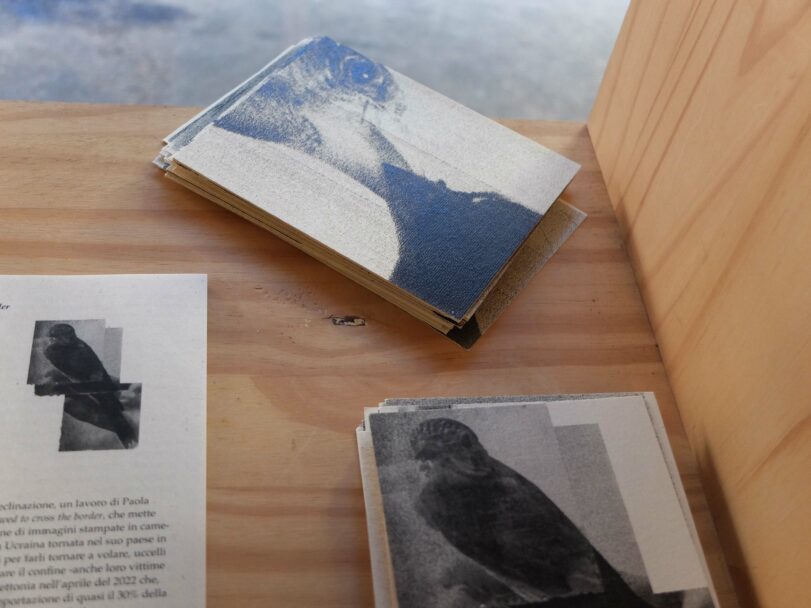December 2024
Paola Favoino, Birds are not allowed to cross the border
We are happy to welcome, in a new declination, a highly sensitive work by Paola Favoino, Birds are not allowed to cross the border, which brings together two projects through the reworking of darkroom printed images: the first tells of Julia, a Ukrainian woman back in her war-torn country who cares for a series of birds to get them to fly again, birds that like her and her family are not allowed to cross the border, victims of the conflict with Russia; the other begun in Latvia in April 2022 and through landscapes and archival photos evokes the deportation of nearly 30 percent of Latvia’s population to Siberia by the then Soviet Union.
In September 2022, Paola Favoino began a correspondence with Julia, a Ukrainian woman who fled to Italy in March, bringing with her a handmade box containing nine birds, her extended family. Their brief acquaintance, which lasted only a summer, continued after her repatriation in September through a dense whatsapp correspondence. The narrative of her seemingly mundane daily life is shot through with the shadow of war, rationed electricity, improvised and often dangerous heating, air-raid alarms and escapes to shelters or out of town, and finally the discovery of the impossibility for her birds (and thus for her) to cross the border again. The project aims to reflect on the theme of modern conflicts and the idea of borders; it is a narrative of war made through the voice of a young woman from Kiev.
Paola created 14 prototypes of Julia’s birds and printed 3,000 postcards that are making their way around the world. Birds are not allowed to cross the border became part of the European project SPORES and was first exhibited at the Goethe-Institut in Rome in March 2023.
It was natural for Paola to integrate this project with the work on mourning and memory started in Latvia during an art residency in 2022, “White blossoms.” This project began in April 2022 in Latvia, one of the Baltic republics, where Paola spent a few months and where she was immediately struck by the strength with which an entire population cultivated and kept alive the memory of grief: the Russian deportations to Siberia in the 1940s and 1950s had forever scarred two entire generations of Latvians and others. From 1940 to 1956 nearly 30 percent of the Latvian population was deported to Siberia by the Russian Soviet Federal Socialist Republic. During her residency, she interviewed some people who were children during that period and worked on private and public archives moving between Riga, the capital, and Cesis, where she had my living and working space. Paola then reprocessed many photos in the darkroom, also using her favorite printing technique, emulsion on paper.
Books selection
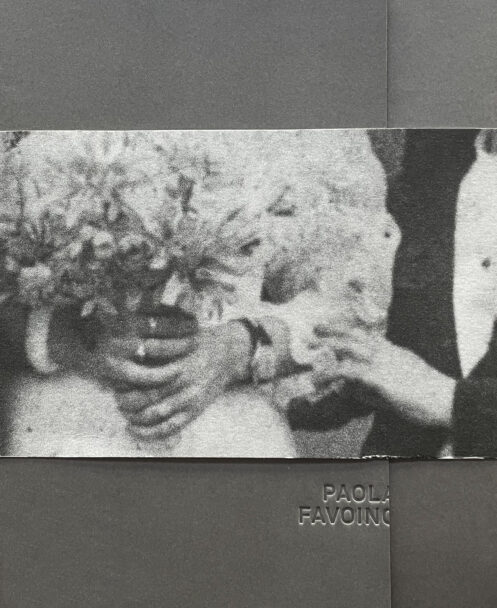
Paola Favoino,
A JE BURRNESH,
2019Hours and Infos
Leporello, Via del Pigneto, 162/e – Roma
info@leporello-books.com
